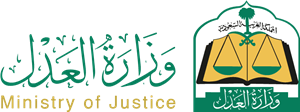180 IT and business services automated
4 months of development
40k staff now benefiting
A vision of efficiency, transparency, and accountability
The Ministry of Justice (MoJ) is a government agency in Saudi Arabia that was established in 1970 to uphold citizens’ rights and oversee the administration of the country’s court system. The MoJ’s primary mission is to ensure the justice environment is based on Islamic law and provide, organize, and develop judicial and notarial services.
Part of the MoJ’s mission is achieving the key objectives outlined in the Saudi Vision 2030 strategic framework. Saudi Vision 2030 aims to diversify the economy and develop public service sectors such as health, education, infrastructure, recreation, and tourism. The framework’s third theme focuses on the integration of the public sector and outlines how an effective government can be achieved by enhancing efficiency, transparency, and accountability.
Maintaining services in a new environment
In 2020, Saudi Arabia’s MoJ found itself facing two main challenges: the first was to develop its role in keeping Saudi Arabia at the forefront of the region’s digital transformation, and the second was to maintain its levels of service provision during a global pandemic.
The MoJ increasingly sees IT as a driver of transformation and was looking to build on the existing infrastructure to provide more services through digital channels.
Specifically, MoJ needed to combine a series of siloed systems into one universal platform that would connect both IT and business services. It also needed to simplify the process of integrating and managing excessive workloads through a user-friendly interface. Success for the MoJ would depend on building effective, efficient, reliable, and well-developed technical and business processes.
“We also needed to find solutions that would allow us to provide our clients with all the necessary services in a way that would not require their physical presence,” explains Maraheb Alrashidi, Da’em Service Center Manager/Project Manager at the Saudi Arabian Ministry of Justice.
In line with Saudi Vision 2030, the MoJ, therefore, set itself a target to digitize 80% of its services, with process automation acting as a key component of this ambition. “Saudi Vision 2030 was presented to us all as a great opportunity,” remarks Maraheb. “But we also took it as a challenge to excel.”
Repeatable, measurable, auditable
Working with IT service management specialist Devoteam, the MoJ developed a strategy. Automation would mean identifying and delivering repeatable, measurable, and auditable workflows, with twin objectives of optimizing efficiency and increasing the department’s oversight.
The MoJ had already invested in ServiceNow IT Service Management (ITSM) as a replacement for its legacy IT support system but soon discovered that ServiceNow solutions had the potential to develop and automate other core processes.
Adopting a platform approach, the MoJ and Devoteam built a team dedicated to supporting shared services and reducing time-consuming manual processes, using the Now Platform and ITSM as the basis for the overall process. Tasks ranged from simple email replacements to the development of complex applications capable of coordinating the work of entire departments
“Given our complex infrastructure and stringent requirements, the implementation process went brilliantly,” explains Maraheb. “From start to finish, the project was smooth and well planned, using agile methodologies.”
A consolidated platform
The Now Platform with ITSM has since enabled the MoJ to automate around 180 processes and deploy around 20 custom ServiceNow business services using low-code/no-code development.
The project’s successful implementation means the MoJ is now able to provide almost all its services on a consolidated digital platform, enabling it to accurately track the progress of requests, incidents, changes, and problems, and monitor performance through service level agreements. The process of standardization has led to improved accountability for the MoJ, and its leadership teams have improved visibility into performance across the department’s wider operations.
More importantly, with ServiceNow ITSM now handling requests and incidents across the MoJ’s entire technology landscape, the experience for both clients and employees has been significantly improved.
Maraheb points to one example of lawyer license provisioning, a previously time-consuming process that required applicants to visit multiple branches. “Now with ITSM, any unlicensed lawyer can go to our ‘Da’em’ portal and simply submit a request for a license,” says Maraheb. “After all the necessary approvals are provided, the fulfillment process is also handled by the system all the way through to completion.”
A fruitful partnership for transformation
The project has already delivered significant improvements in multiple areas for the MoJ. The department now tracks key indicators such as service availability, resolution rates, SLA breach rates, user satisfaction, calls reopened, and knowledge articles created and accessed. Strong results combined with the smooth implementation process mean the MoJ is now planning to extend its portfolio to include ServiceNow IT Operations Management.
“From the management and technical skills supplied by Devoteam to the platform capabilities that ServiceNow provides, everyone’s life is simply easier,” concludes Maraheb. “We are looking forward to continuing this fruitful partnership and our digital transformation, leading us to strategic success.”
Saudi Vision 2030 was presented as a great opportunity, but we also took it as a challenge to excel.

